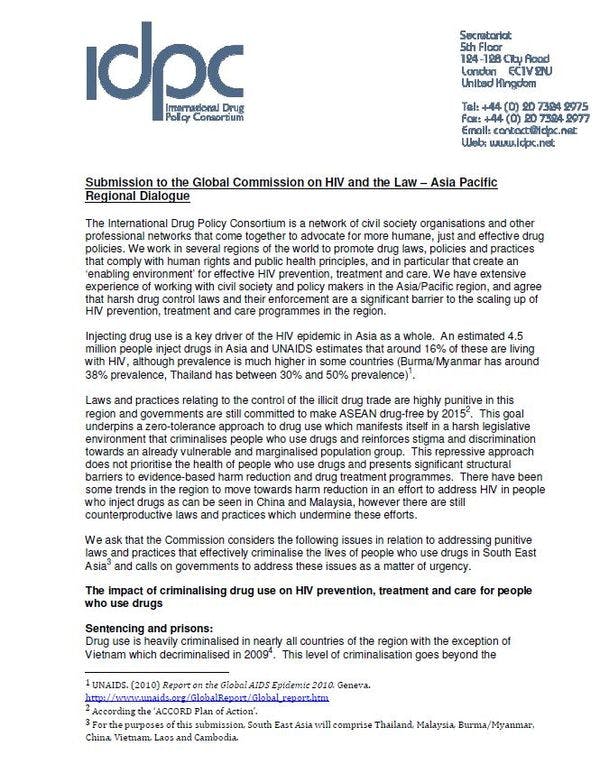IDPC calls Global Commission on HIV and the Law to consider health and human rights implications of current drug control strategy
Injecting drug use is a key driver of the HIV epidemic in Asia as a whole. An estimated 4.5 million people inject drugs in Asia and UNAIDS estimates that around 16% of these are living with HIV, although prevalence is much higher in some countries (Burma/Myanmar has around 38% prevalence, Thailand has between 30% and 50% prevalence).
Laws and practices relating to the control of the illicit drug trade are highly punitive in this region and governments are still committed to make ASEAN drug-free by 20152. This goal underpins a zero-tolerance approach to drug use which manifests itself in a harsh legislative environment that criminalises people who use drugs and reinforces stigma and discrimination towards an already vulnerable and marginalised population group. This repressive approach does not prioritise the health of people who use drugs and presents significant structural barriers to evidence-based harm reduction and drug treatment programmes. There have been some trends in the region to move towards harm reduction in an effort to address HIV in people who inject drugs as can be seen in China and Malaysia, however there are still counterproductive laws and practices which undermine these efforts.
The first Regional Dialogue for the Asia-Pacific will take place on 24-25 February 2011 in Bangkok, Thailand. In addition to giving voice to regional and country perspectives on issues of HIV and the law, the dialogue aims to contribute to regional efforts for creating enabling legal environments which support effective HIV responses.
In this paper, IDPC asks that the Commission considers a number of issues in relation to addressing punitive laws and practices that effectively criminalise the lives of people who use drugs in South East Asia and calls on governments to address these issues as a matter of urgency.
Topics
Related Profiles
- International Drug Policy Consortium (IDPC)
